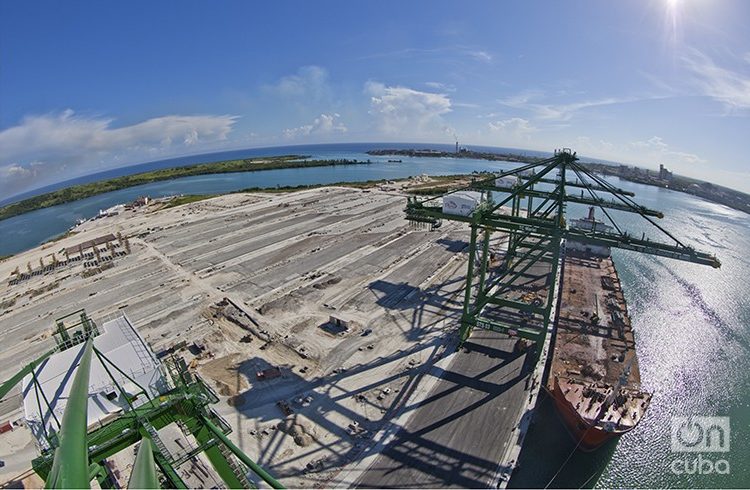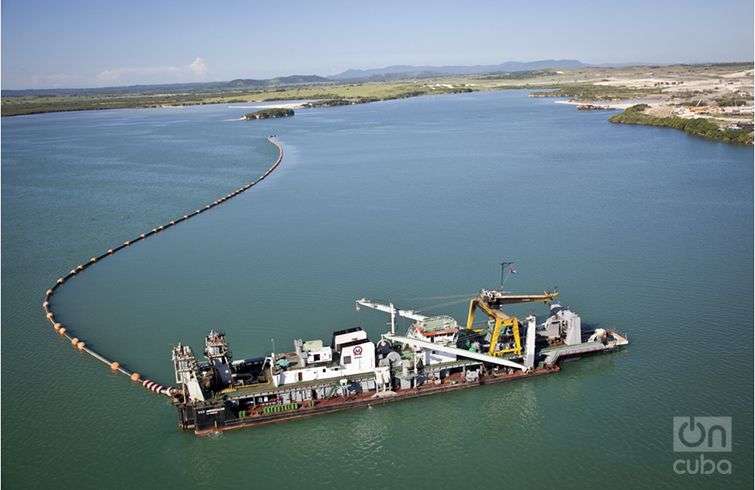Before 2013, foreign capital activities in Cuba were unusual, independently of the type of relations of production involved. For a long time, business done with foreign investment lacked an overall approach to the Cuban economy; investments were approved for individual links in the chain of production, and those links then faced difficulties in achieving the success of the cycle as a whole and the end result. This reality, as well as the use of a currency other than the national currency for carrying out all business, made foreign investment a sui generis practice in Cuba, despite the success of certain foreign companies that still exist.
That is, even though there was less business, companies that continued operating until 2003 produced positive results. These International Economic Associations constantly increased their rates of total sales of goods and services, and that year they made more than $5.2 billion; exports amounted to more than $3.4 billion, and direct income for the country was estimated at about $600 million.
The Cuban state, in a demonstration of substantial pragmatism, saw itself obligated to relaunch the foreign investment variable starting in 2013, to speed up economic growth rates, an element related to the low percentage that the State had invested in this sense. Key factors in this relaunching have included the recent passing of Decree Law 313, which allows for the creation of the Mariel Special Development Zone; the new foreign investment law, Law 118; and the potential of investors from the United States, based on the restoration of relations between Cuba and that country on July 20, 2015.
The unfavorable situation of Cuban macroeconomic indicators, the deterioration and technologically obsolete conditions of production capacities, and the need to make incursions into sustained future development all merited a new analysis of Direct Foreign Investment (DFI), a theme that is repeatedly mentioned in the Economic and Social Policy Guidelines of the Party and the Revolution (“Los Lineamientos”), a guide for economic change in Cuba that was passed on Apr. 18, 2011, by the Communist Party’s 6th Congress.
To attract the external resources that Cuba needs, it was evident that the new foreign investment law had to grant greater incentives to foreign capital. Given that certain areas of business, such as infrastructure, have long periods for recovering the capital invested, it was necessary to implement fiscal exemption policies for certain lengths of time, or for companies that were 100 percent foreign. And it was evident that Cuba had to reduce its level of discretion in approving businesses, while also making public the tenders that had to be made, to the extent that several proposals existed for a single business.
While still pending, it would also be necessary to stimulate the entry of foreign capital from Cubans resident abroad, and at the same time, allow private Cuban business people to associate with foreign business people in small and medium size businesses, at least through urban cooperatives, in an initial stage.
One promising initiative has been the Mariel Special Development Zone, for generating exports and replacing imports; transferring cutting-edge technology, know-how, and abilities related to business management; creating jobs and developing infrastructure for contributing to economic progress; creating a logistics system that will facilitate high levels of efficiency in the import, export and production processes; stimulating the formation of national and foreign companies; and, logically, articulating these companies with the rest of the economy.
As part of the special zone, a modern container terminal was opened in the Port of Mariel, which is probably one of the largest investment projects in Cuba today. Without a doubt, this is framed in a larger context of international reconfiguration, because what may be at stake has a much greater scope: Cuba’s eventual participation in that process would be part of a central dynamic of capital accumulation, a detail that should be taken into account in Cuba’s future. This is evident from the Zone’s geographical position, both today and in the future when the new Panama Canal lock is completed, paving the way for a new generation of Ultra Postpanamax container ships.
Also attractive is an analysis of Decree Law 313’s Chapter 3, Article 20, which says, “The concession of a business may be granted for a term of up to 50 years and moreover can be extendable.” This is a very advantageous length of time.
At the same time, Chapter 5’s Article 23 defines a MSDZ user as an individual or legal entity residing within the national territory, which would stimulate Cubans to have a presence in the Zone.
Generally speaking, the legal documentation approved and government interest in the development of the Zone may attract investment to the zone, given the benefits that its offers, especially for investors from the United States, for whom the road is apparently being cleared, although many legal obstacles still remain. The Cuban state should be vigilant to avoid repeating past errors, such as discouraging foreign investors.
Interestingly, since Dec. 17, 2014, as a result of U.S. and Cuban interest in normalizing relations, more proposals have been made for foreign investment in Cuba by different companies, especially in the Mariel Special Development Zone. More than 300 proposals have been counted so far, even though the process has not been as swift as the historic moment requires, given that only five approvals have been announced for businesses made up of totally foreign capital.
It would also be important to note that recently-approved non-agricultural cooperatives have been authorized to form alliances with foreign capital, or for foreign companies to provide them with supplies for their development; however, in reality, there is no sign yet of government interest in the materialization of any such association.
In addition, natural Cuban capital can be a Mariel Special Development Zone user, according to the legislation approved recently. What is unknown is whether any proposal of this type is in the approval stage.
In general, Cuba is going through a favorable stage internationally. It has been changing its financial image by allocating large sums of money to pay off previous debts; going through a process of debts being forgiven, and reporting a certain level of improvement in its macroeconomic indicators, with growth this year of more than 4 percent. However, we should take into account that all productive forces need to be stimulated, both state and non-state, so that indicators of the Cuban population’s economic well-being can make themselves felt in the shortest amount of time possible.










